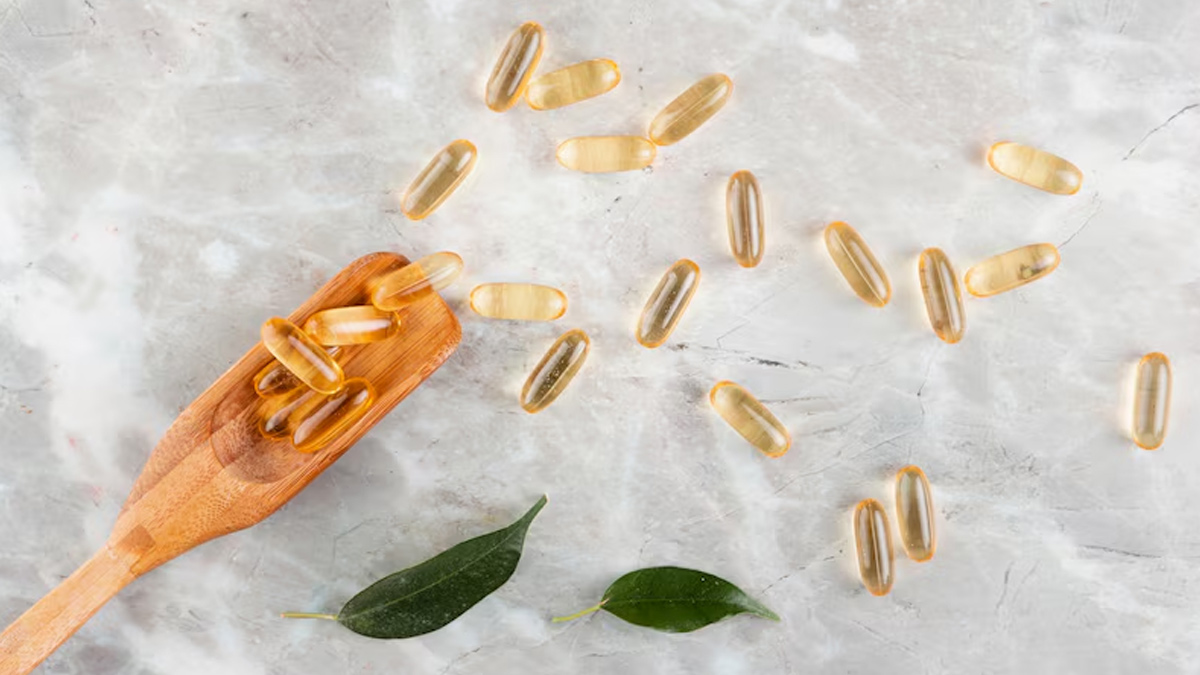
Collagen is our body's scaffolding, as it's often referred to, and is the most prevalent protein in our bodies. It's the key to our skin, hair, nails, as known by many but also important for bones, joints, and even our gut. As we get older, our own collagen production slows down, causing a bunch of changes many of us blame on plain old age. But what if those changes are more than simply ageing? What if they are subtle, or not-so-subtle, indicators of collagen deficiency?
Table of Content:-
In an exclusive interaction with the editorial team of Onlymyhealth, Dr Sanjeev Gulati, Dermatologist, Department of Dermatology, Sharda Hospital, Noida, explained that identifying how to recognise these indicators can empower you to take proactive action to supplement your body's collagen and sustain your overall well-being and energy.
Why Does Collagen Decrease?
Aside from the natural ageing process, Dr Gulati explained why collagen decreases with age and that there are a number of reasons that can quicken collagen degradation. They may include:
- Sun Exposure: UV radiation degrades collagen fibres, causing premature ageing.
- Smoking: Tobacco smoke greatly inhibits collagen production and encourages degradation.
- Poor Diet: Vitamin C, zinc, copper, and amino acids (collagen building blocks) deficiency can slow or prevent production.
- High Sugar Consumption: Too much sugar can create advanced glycation end products (AGEs), which cause collagen and elastin damage.
- Autoimmune Diseases: Some diseases can attack and destroy collagen.
- Stress: Long-term stress can lead to inflammation, and that affects collagen.
Symptoms of Collagen Deficiency
Although a medical assessment usually confirms a diagnosis of collagen deficiency, there are a few typical indicators of your body's potential shortfalls:
1. Most Apparent Skin Signs
Since collagen constitutes such a large percentage of our skin, alterations there are frequently the first to manifest:
- Increased Wrinkles and Fine Lines: This is arguably the most commonly recognized indicator. When collagen decreases, the skin becomes less elastic and less plump, and it forms lines and wrinkles, most notably around the eyes, mouth, and forehead.
- Sagging Skin: Cheeks, jawline, and even eyelids may start to sag as the structural support of collagen fades.
- Dull, Dry Skin: Collagen plays a role in skin hydration. A lack of it can lead to a less radiant, more parched complexion.
- Loss of Skin Elasticity: Pinch a small amount of skin on the back of your hand. If it takes a while to snap back, it could be a sign of reduced collagen and elastin.
- Thinning Skin: The skin may become more fragile and prone to tearing or bruising.
Also Read: Is Your Face Wash Too Harsh For Summer? Signs You’re Stripping Your Skin

2. Hair and Nail Appearance
Collagen is also essential to the growth and strength of our hair and nails:
- Brittle Nails: Weak, easily breakable, or split-prone nails may reflect an insufficiency of collagen.
- Hair Thinning or Hair Loss: Collagen ensures healthy hair follicles. Lower collagen can cause thinning hair and loss, potentially leading to greater shedding.
- Lifeless, Dull Hair: Hair loses its natural luster and becomes more prone to breakage.
3. Joint and Bone Pain
Collagen is a key substance in cartilage. For the unversed, cartilage is the rubbery, shock-absorbing tissue that cushions joints an dcollagen is also necessary for bone density. Here is how it assists:
- Joint Stiffness and Pain: Lower collagen levels in cartilage may result in greater friction between bones, causing pain, stiffness, and less mobility. You may experience creaking or snapping joints.
- Less Flexibility: Simple tasks, such as bending or stretching, may be harder to do.
- Greater Susceptibility to Bone Fractures: Even though this is not immediately noticeable, a long-term shortage of collagen may be responsible for less strong bones and higher osteoporosis risks.
4. Digestive Issues
Collagen is found in the lining of our digestive tract. If you are deficit of collagen, here are the digestive issues you might face:
- Leaky Gut Syndrome: A weakened intestinal lining due to insufficient collagen can lead to increased permeability, allowing undigested food particles and toxins to enter the bloodstream, potentially causing inflammation and various symptoms.
- Digestive Discomfort: You might experience more frequent bloating, gas, or general digestive upset.
5. Muscle Weakness
Collagen is found in muscle tissue and fascia, the connective tissue that envelops muscles. Not as evident as other symptoms, a loss of collagen can affect muscle well-being and recovery indirectly, causing more frequent pains or a general sense of weakness.

What to Do If You Suspect Collagen Deficiency
If you're seeing a number of these symptoms, it's a good idea to look at things to help your body make collagen. Here are a few expert-approved things you can do:
1. Dietary Changes
- Add Collagen-Rich Foods: Bone broth, gelatin, and some cuts of meat are good sources.
- Increase Vitamin C Consumption: This is important in the synthesis of collagen. Think citrus fruits, bell peppers, berries, and leafy greens.
- Take Amino Acids: Maintain proper amounts of proline, glycine, and hydroxyproline, which are present in protein-containing foods such as chicken, fish, eggs, and legumes.
- Add Zinc and Copper: They are cofactors in collagen synthesis. Foods that contain them are nuts, seeds, legumes, and whole grains.
2. Add Collagen Supplements
Hydrolyzed collagen peptides are easily absorbed and can be incorporated into beverages or food. Choose well-established brands with third-party verification.
3. Shield Your Skin from the Sun
Apply broad-spectrum sunscreen every day, cover up with protective clothing, and find shade during the sun's peak hours.
4. Stop Smoking
Smoking is truly the worst thing you can do to your skin and body. Hence, quitting this habit is one of the most effective actions you can take to help maintain collagen.
5. Regulate Blood Sugar
Limit consumption of processed sugars and refined carbohydrates. Exciess sugar slows the production of collagen which leads to health ailments mentioned above.
6. Drink Plenty of Water
Water is crucial for healthy skin and connective tissues. Therefore, having enough water throughout the day will help boost collagen production in your body.
Bottomline
Though ageing is unavoidable, suffering from overt symptoms of collagen loss doesn't have to be. By being attentive to the subtle signals your body sends, you can take proactive steps to feed your collagen reserves and maintain your overall health and well-being. If concerns are significant, consult with a healthcare provider to address your specific needs and the most suitable response. Investing in your collagen well-being is investing in a more beautiful, stronger you.
Also watch this video
How we keep this article up to date:
We work with experts and keep a close eye on the latest in health and wellness. Whenever there is a new research or helpful information, we update our articles with accurate and useful advice.
Current Version